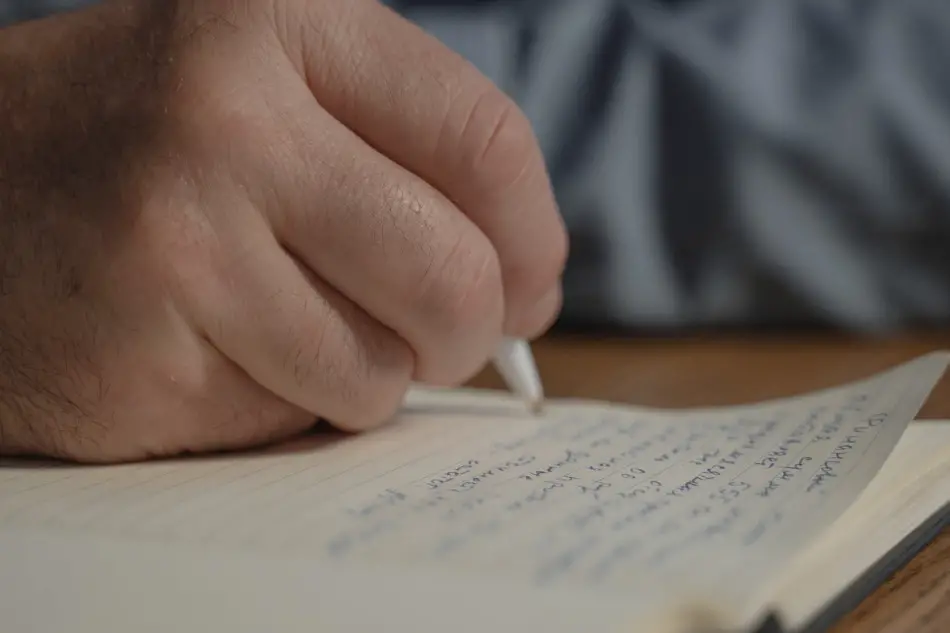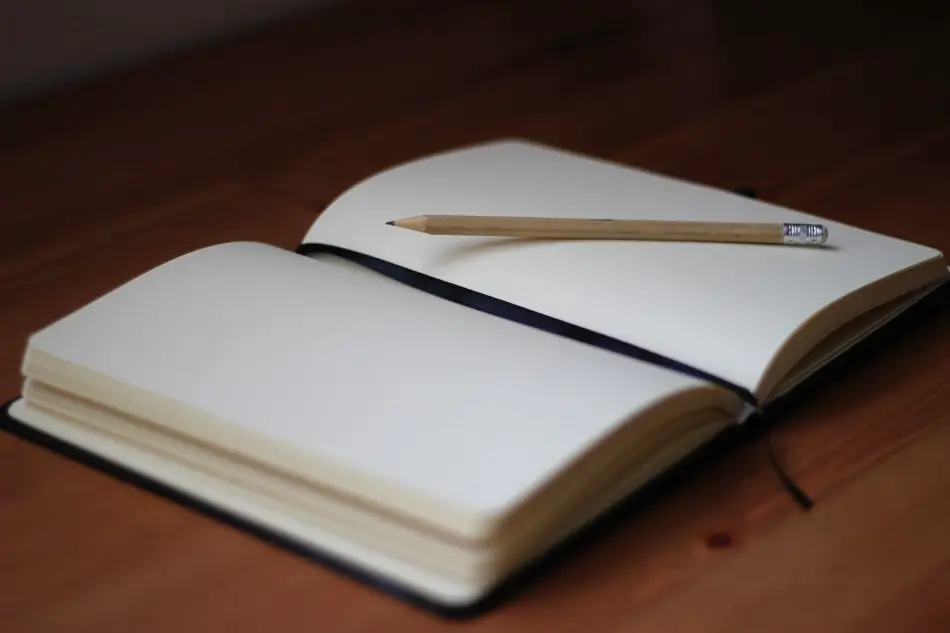Creative writing is an art that transcends the pages of a book. It can be used to inform, inspire, and even entertain.
From a kindergartner on his or her first writing assignment to a retiree with time on their hands, anyone can do it!
All you need is a little imagination and some basic writing skills. So, how does one get started?
To teach yourself creative writing, follow these five steps – decide the form of creative writing you want to pursue, read books in your chosen genre, select a topic that interests you, attempt freewriting, and lastly, organize your writing into a cohesive piece.
If you’re worried about when, where, and how to begin, let us help you.
In this handy guide, you will learn everything you need to know about unleashing your inner creative writer.
From finding inspiration to developing your voice, we will cover it all.
So put on your thinking cap and let’s get started!
5 Steps to Teach Yourself Creative Writing
If you’ve read this far, chances are you’re interested in learning how to write creatively.
Maybe you’ve always wanted to write a novel, or maybe you just want to add some pizzazz to your work emails.
Whatever the reason, we’re here to help!
Follow these five steps and you’ll be on your way to becoming a creative writing pro.
-> Read Also What Is An Autodidact?
Step One: Decide the Form of Creative Writing You Want to Pursue

When it comes to creative writing, there are many different forms you can choose from.
Depending on your interests and goals, you might want to try your hand at writing poetry, short stories, or even a novel.
Here are some of the most popular forms of creative writing:
- Novel Writing: A novel is a work of fiction that is typically longer than 200 pages. If you’re interested in writing a novel, you’ll need to be able to create believable characters and craft an engaging story.
- Short Stories: A short story is a work of fiction that is typically less than 20 pages. When writing a short story, it’s important to focus on creating a complete and compelling plot.
- Flash Fiction: Flash fiction is a very short work of fiction, typically less than 1000 words. When writing flash fiction, it’s important to be concise and focus on creating a strong emotional impact.
- Poetry: Poetry is a type of creative writing that often uses rhyme and meter. When writing poetry, it’s important to be concise and use language that is both evocative and imagistic.
- Playwriting: A play is a work of fiction that is written to be performed. When writing a play, it’s important to create believable characters and write dialogue that sounds natural.
- Scriptwriting: Similar to playwriting, except that scripts are written to be performed by television or film actors.
- Memoirs: A memoir is a type of creative writing that is based on real-life events. Usually, memoirs are written to share a personal story or to reflect on an experience
- Speeches: A speech is a type of creative writing that is written to be spoken aloud. Since it’s a form of written as well as oral communication, it’s important to be both clear and concise when writing a speech.
- Blog Writing: A blog is a type of creative writing that is written to be published online. This guide is an example of creative blog writing!
- Essay Writing: An essay is a type of creative writing that explores a particular topic. It’s a form of non-fiction writing since it’s based on real events or experiences.
Try to focus on one form of writing at a time, rather than trying to tackle everything at once.
Once you’ve decided on the form of creative writing you want to pursue, you can move on to step two!
Step Two: Read Books in Your Chosen Genre

Now that you’ve decided what form of creative writing you want to pursue, it’s time to start reading!
Reading books in your chosen genre will help you get a feel for the style and structure of writing. It will also give you some ideas to help jump-start your own writing.
These are some of our recommendations for each of the most popular genres:
| Genre | Recommendations |
| Novel Writing | To Kill a Mockingbird – Harper LeeThe Great Gatsby – F. Scott FitzgeraldThe Catcher in the Rye – J. D. Salinger |
| Short Stories | The Lottery – Shirley JacksonThe Gift of the Magi – O. HenryThe Tell-Tale Heart – Edgar Allan Poe |
| Flash Fiction | The Visitor – Lydia DavisGive It Up! – Franz KafkaTaylor Swift – Hugh Behm–Steinberg |
| Poetry | The Road Not Taken – Robert Frost Still I Rise – Maya AngelouThe Raven – Edgar Allen Poe |
| Playwriting | Hamlet – William ShakespeareDeath of a Salesman – Arthur MillerThe Glass Menagerie – Tennessee Williams |
| Scriptwriting | The Godfather – Mario Puzo and Francis Ford CoppolaAnnie Hall – Woody Allen and Marshall BrickmanEternal Sunshine of the Spotless Mind – Charlie Kaufman |
| Memoirs | Becoming – Michelle ObamaThe Autobiography of Malcolm X – Malcolm XThe Soul of a Butterfly – Muhammed Ali |
| Speeches | I Have a Dream – Martin Luther King JrThe Gettysburg Address– Abraham LincolnLuckiest Man – Lou Gehrig |
| Blog Writing | Design For Mankind – Erin LoechnerEnjoy It – Elise Blaha CripeGary Vaynerchuk – Gary Vaynerchuk |
| Essay Writing | Notes of a Native Son – James Baldwin Shooting an Elephant – George OrwellHarrison Bergeron – Kurt Vonnegut |
Make sure you read at least a few books (4-5 minimum) in your chosen genre before moving on to step three!
This will help give you a well-rounded understanding of the style and structure of writing in your chosen genre.
Step Three: Select A Topic That Interests You
Once you’ve decided on the form of creative writing you want to pursue and have read some books in your chosen genre, it’s time to select a topic that interests you.
Your topic doesn’t have to be anything groundbreaking – it can be something as simple as “a day in the life of a cat.”
The important thing is that you’re passionate about it and that it will give you something to write about.
If you’re having trouble coming up with a topic, try brainstorming:
- Make a list of things that interest you.
- Think about experiences you’ve had that were meaningful to you.
- Write down any ideas that come to mind, no matter how strange or off-the-wall they may seem.
Here are some great topic ideas from our side to help get you started:
- What will the world look like 100 years from today?
- Fanfiction of your favorite book/movie.
- Visiting a new planet and meeting aliens.
- Re-writing history from a different perspective.
- What will I do as President of the United States?
For more ideas, you can even check out this blog – https://blog.reedsy.com/creative-writing-prompts/. (They have over 1100+ creative writing prompts to help get you started!)
Step Four: Attempt Freewriting

One of the greatest tools for a writer is freewriting. Freewriting is when you sit down with a blank piece of paper (or computer screen) and just write.
That’s it. No rules, no structure, no prompts – just write.
The point of freewriting is to get your creative juices flowing and to help you generate new ideas. It’s also a great way to warm up before you start writing your actual piece.
Since you’ve selected your topic from the earlier step, try freewriting about that topic for 15-20 minutes.
Write down every thought you have about that topic, no matter how crazy it may seem.
Here are some tips for freewriting:
- Set a timer for 20 minutes and start writing.
- Don’t stop to edit or re-read what you’ve written – just keep going.
- Forget about grammar, spelling, and punctuation. The goal is not to produce aesthetic prose, but to get your ideas down on paper.
- Keep your hand moving always – don’t pause to think too much about what you’re writing.
- If you run out of things to say, try listing out things related to your topic (e.g., if your topic is “cats,” you could list out different breeds of cats, famous cats in history, etc.)
- Once the timer is up, stop writing.
At the end of your freewriting session, you should have a lot of material to work with.
Now it’s time to start shaping that material into a cohesive piece.
Step Five: Organize Your Writing
Take a look at your freewriting and start picking out the best bits. Highlight or underline the sections that you think are strongest and that you might want to use in your final piece.
Once you’ve done that, it’s time to start organizing your ideas into a structure.
This will be different for every piece of writing, but there are some general tips you can follow:
- For a story – start by brainstorming a list of characters, locations, and plot points. Then, start mapping out the events of your story in chronological order.
- For an essay – begin by deciding what your thesis statement will be. Once you have your thesis, you can start brainstorming ideas and evidence to support it. After that, you can start organizing your essay into an introduction, body paragraphs, and a conclusion.
- For a poem – first, decide what form or structure you want your poem to take. Once you have that in mind, start brainstorming words and images related to your topic. You can then start piecing those words and images together into lines and stanzas.
Since you already have all that content from your freewriting session, organizing it should be a breeze. And once you’re done, you’ll have your very first creative writing piece in front of you.
Read through it, make corrections (grammatical or otherwise), and give yourself a pat on the back – you did it!
You’ve successfully taught yourself creative writing!
Don’t stop though! Keep practicing and honing your craft, and before you know it, you’ll be a published writer in no time.
-> Learn More about Self-Learning vs. Classroom Learning: Which Is Better?
Best Tools to Make Learning Creative Writing by Yourself Easier
While creative writing can be done with just a pen and paper (or sometimes even without!), there are definitely some tools that can make the process easier.
These are the top 5 tools that all aspiring creative writers should have in their arsenal:
1) Google Docs:
If you’re someone who writes on a computer, then you absolutely need to be using Google Docs.
It’s a free word processing program that has all the features you need for creative writing (and more).
Plus, it’s cloud-based, so you can access your documents from anywhere.
Link – https://www.google.com/docs/about/
2) Grammarly:
Grammarly is a free grammar checker that will help you catch errors in your writing. Just copy and paste your text into the app and it will point out any mistakes.
It also has features to help with style, spelling, and more.
Link – https://app.grammarly.com/
3) Daily Page
If you’re someone who struggles with writer’s block, then Daily Page is a great tool for you. It’s an app that gives you a prompt to write about every day.
And it’s not just for creative writing – there are prompts for journaling, business writing, and more.
Link – https://www.dailypage.co/
4) Hemingway Editor
The Hemingway Editor is a great tool for checking the readability of your writing. It will highlight any areas that are too dense or complex, and it will also give you suggestions for making your writing simpler. Even
if you’re not a professional writer, this app will make you sound like one.
Link – https://hemingwayapp.com/
5) The Most Dangerous Writing App
The Most Dangerous Writing App is, well, the most dangerous writing app. It’s an app that deletes everything you write if you stop typing for more than the set time limit.
So if you’re someone who needs a little extra motivation to keep writing, this is the app for you.
Link – https://www.squibler.io/dangerous-writing-prompt-app
Career Opportunities After Teaching Yourself Creative Writing

There’s a common misconception that creative writing does not have any real-world applications. But the truth is, there are many career opportunities available for those with a knack for writing.
Here are some of the most coveted jobs for creative writers:
| Career Opportunities | Description | Annual Salary (in dollars) |
| Author | This is the dream job for many writers. If you’re lucky enough to get your work published, you can make a living off of your writing. Think of George R.R. Martin or J.K. Rowling – they’re both authors who have made millions off of their writing. | Depends on the genre, quality, and customer base of the book. |
| Freelance writer | Don’t want to be tied down to one employer? Then freelance writing might be the perfect gig for you. Freelance writers are paid to write on a variety of topics, and they can work from anywhere in the world. | $63,213 |
| Columnist | Love sharing your opinions? Then you might want to consider becoming a columnist. Columnists write for newspapers and magazines, and they often have a regular readership. | $51,229 |
| Copywriter | Copywriters are responsible for writing the text that appears in advertisements. This job requires a mix of creativity and marketing skills, as you need to be able to write persuasive copy that sells products or services. | $53,309 |
| Editor | Editors work for publishing houses, and their job is to improve the quality of a manuscript before it’s published. If you’re a detail-oriented person with a love for language, then this might be the perfect job for you. | $46,420 |
| Email Marketing Specialist | Ever received an interesting email from a company and thought, “Wow, this is really well-written”? That’s because there’s someone behind the scenes responsible for writing those emails – an email marketing specialist. | $50,234 |
| Ghostwriter | Ghostwriters are hired to write books, articles, or even speeches that will be published under someone else’s name. This job is perfect for writers who want to remain behind the scenes, yet still get their work published. | $63,915 |
| Journalist | Journalists are responsible for reporting the news. If you’re interested in writing about current events, then this might be the perfect career for you. In today’s political and social climate, there’s no shortage of stories to be told. | $60,286 |
| Screenwriter | Screenwriters write the scripts for movies and TV shows. If you’re interested in writing for the silver screen, then this is the job for you. You could be the next Quentin Tarantino or Shonda Rhimes! | $60,722 |
| Social Media Specialist | A social media specialist is responsible for creating and managing a company’s social media presence. This job requires strong writing skills, as you need to be able to craft catchy posts that will capture the attention of potential customers. | $47,727 |
| Travel Blogger | Do you love to travel? Then you might want to consider becoming a travel blogger. Travel bloggers get paid to write about their adventures, and they often have opportunities to travel for free or at a discounted rate. | $63,173 |
Frequently Asked Questions (FAQs)

Here are some of the most frequently asked questions about teaching yourself creative writing:
Q.1. What are the benefits of learning creative writing?
A. The benefits of learning creative writing are many. For one, it can help improve your communication skills.
Additionally, it can also help you better understand yourself and the world around you.
Finally, it can also lead to a career in writing.
Q.2. How long does it take to learn creative writing?
A. There is no one-size-fits-all answer to this question, as the amount of time it takes to learn creative writing will vary depending on your skill level and how much time you’re willing to dedicate to learning.
However, most people can expect to spend at least a few months – if not longer – honing their craft.
Q.3. What are some of the best books to teach yourself creative writing?
A. Some of the best books you can read to teach yourself creative writing are – Stein On Writing by Sol Stein, Zen in the Art of Writing by Ray Bradbury, and On Writing: A Memoir of the Craft by Stephen King.
-> Learn more about the 7 best websites for self-learning
Final Thoughts
All writers have to start somewhere, and teaching yourself creative writing is a great way to get your foot in the door.
While it takes time and effort to learn the craft, the rewards – both personal and professional – are more than worth it.
So get your pens (or laptops) out and start writing!






